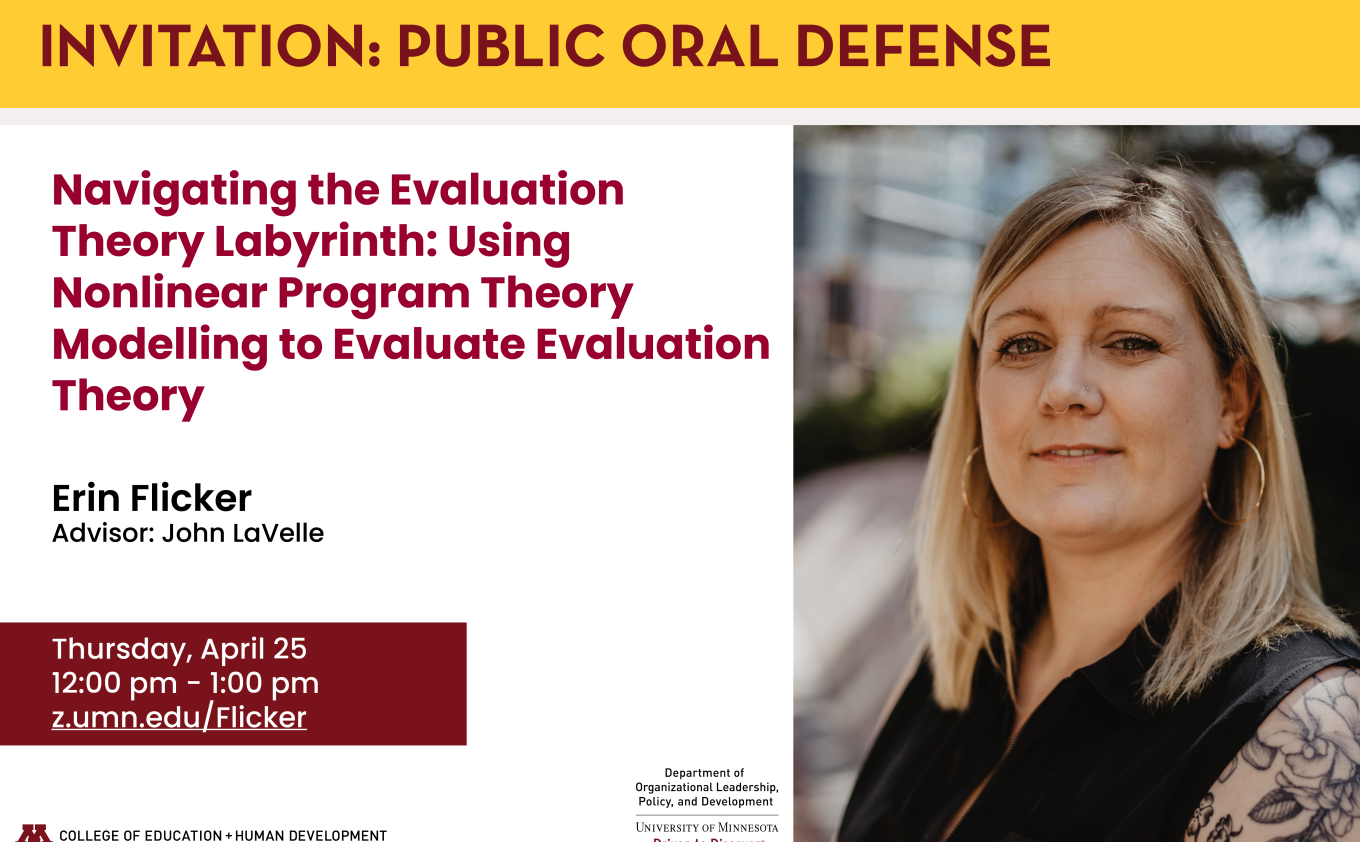Events
Public Oral Defense: Erin Flicker

Navigating the Evaluation Theory Labyrinth: Using Nonlinear Program Theory Modelling to Evaluate Evaluation Theory
Advisor: John LaVelle
Evaluation theory has often lacked alignment with practical evaluation activities, leading to assertions that “program evaluation is … (unfortunately) a largely atheoretical activity” (Wortman, 1983). This dissertation addresses this gap by utilizing evaluation tools to assess evaluation theory, specifically focusing on the Action Model/Change Model of understanding program theory and its relevance to evaluation theory. Through interviews with Dr. Chen, the originator of the model, a qualitative content analysis of academic literature on Values Engaged, Educative Evaluation (VEE), and the development of a VEE Action Model/Change Model, this study explores the applicability of the model to evaluation theory.
Semi-structured interviews with practicing evaluators were conducted to assess the utility of the VEE Action Model/Change Model, resulting in a deep understanding of VEE theory and its practical implications. Initial feedback indicated positive responses, highlighting the model’s potential to clarify evaluation theory, align practice with theoretical frameworks, and validate theories in practice.
This research represents a foundational step towards creating a more robust understanding of evaluation theory amongst practitioners lays the groundwork for future research to further explore and refine evaluation theory. By bridging the gap between theory and practice, this study contributes to the ongoing development and effective implementation of evaluation theory in diverse contexts.
Burton Hall 206G or Online via Zoom
Photographs taken at the event may be used in University of Minnesota print and online publications, promotions, or shared with the CEHD community.
The University of Minnesota shall provide equal access to and opportunity in its programs, facilities, and employment without regard to race, color, creed, religion, national origin, gender, age, marital status, familial status, disability, public assistance status, membership or activity in a local commission created for the purpose of dealing with discrimination, veteran status, sexual orientation, gender identity, or gender expression. All are welcome.
The University of Minnesota campuses were built on the traditional homelands of the Dakota and Ojibwe, and scores of other Indigenous peoples who have walked on these lands from time immemorial. It is important to acknowledge the peoples on whose land we live, learn, and work as we seek to improve and strengthen our relations with our tribal nations. We also acknowledge that words are not enough. We must ensure that our institution provides support, resources, and programs that increase access to all aspects of higher education for our American Indian students, staff, faculty, and community members.